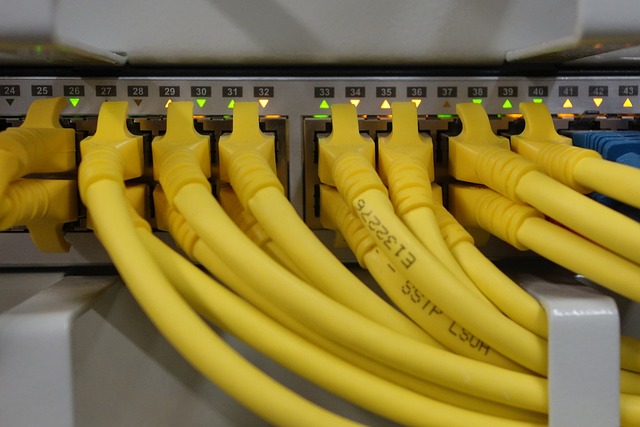The Family Educational Rights and Privacy Act (FERPA) protects student data privacy in US education. Cloud solutions for education are essential for secure data storage, transmission, and access while complying with FERPA's strict regulations. These solutions employ multi-factor authentication, role-based permissions, and regular audits to ensure authorized access only. Adopting cloud platforms streamlines data management, enhances security through encryption, enables remote record-keeping, and simplifies regulatory compliance for education institutions.
In today’s digital age, safeguarding student data is paramount. The Family Educational Rights and Privacy Act (FERPA) sets critical standards for protecting sensitive information within educational institutions. This article explores FERPA compliance in depth, focusing on how cloud adoption enhances data security and accessibility while adhering to stringent education regulations. We delve into best practices for privacy protection, offering valuable insights on navigating the complexities of modern education through innovative cloud solutions for education.
Understanding FERPA: Protections for Student Data
FERPA, or the Family Educational Rights and Privacy Act, is a federal law in the United States designed to protect the privacy and confidentiality of student educational records. It sets clear guidelines for schools and educational institutions regarding the access, use, and disclosure of personal data belonging to students. Understanding FERPA is essential for any organization providing cloud solutions for education, as it dictates how sensitive student information can be handled.
Under FERPA, student data includes various types of records, such as academic performance, attendance, discipline, and even health information. Schools must obtain written permission from parents or eligible students before disclosing this data to third parties, including cloud service providers. Cloud solutions for education that are FERPA-compliant ensure that student data is securely stored, transmitted, and accessed, maintaining the privacy and security standards required by law.
Cloud Adoption: Secure Storage and Access Control
Cloud adoption has become a popular trend among educational institutions, offering scalable and flexible solutions for data storage and management. However, as schools move their sensitive student information to the cloud, ensuring compliance with regulations like FERPA (Family Educational Rights and Privacy Act) becomes paramount. Cloud service providers must implement robust security measures to safeguard academic records, employing advanced encryption techniques and access control protocols.
Secure cloud solutions for education require multi-factor authentication, role-based permissions, and regular security audits. By leveraging these measures, educational institutions can ensure that only authorized personnel gain access to student data, maintaining the privacy and confidentiality mandated by FERPA. This approach not only meets regulatory requirements but also instills confidence among parents, guardians, and students regarding their academic records’ protection in the digital realm.
Ensuring Privacy: Best Practices for Education Institutions
Ensuring privacy is a paramount concern for education institutions, especially with sensitive student data at risk. The Family Educational Rights and Privacy Act (FERPA) sets strict guidelines to protect personal information. To maintain compliance, institutions should adopt robust security measures, such as implementing cloud solutions for education that offer advanced encryption and access controls. These cloud-based systems enable secure storage and sharing of data while allowing administrators to monitor user activities.
Regular training sessions for staff and faculty on data privacy best practices are essential. This includes understanding the limits of sharing information, recognizing potential security breaches, and responding appropriately to data protection incidents. By combining robust technology with comprehensive training, educational institutions can safeguard student data effectively, ensuring both compliance with regulations like FERPA and a safe learning environment.
Compliance Strategies: Navigating Education Regulations with Cloud Solutions
Education institutions are navigating a complex web of regulations, including FERPA (Family Educational Rights and Privacy Act), to ensure data protection and privacy. Cloud solutions for education have emerged as a powerful strategy to simplify this process. By leveraging cloud technology, schools can centralize and secure student data while maintaining compliance with these critical regulations.
This approach offers several advantages. Cloud platforms provide robust security measures, ensuring data encryption and access controls. They also enable remote access, allowing educators and administrators to manage student records efficiently from anywhere. Moreover, cloud solutions often include automated tools for data backup and recovery, reducing the risk of data loss and simplifying compliance checks.
In navigating the complex landscape of IT compliance, especially within the education sector, institutions must embrace modern tools like cloud solutions for education. By understanding regulations such as FERPA and implementing secure cloud adoption strategies, educational entities can ensure robust data protection while fostering efficient operations. Adhering to best practices guarantees privacy, enabling schools to leverage technology without compromising student information security. Cloud solutions offer a comprehensive approach to compliance, streamlining processes and ensuring institutions stay ahead of evolving education regulations.
